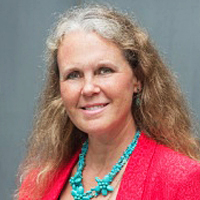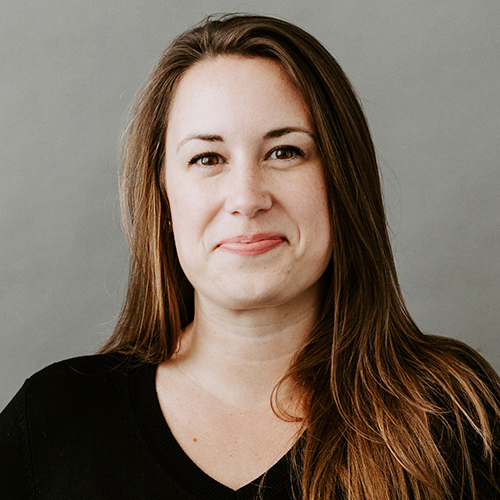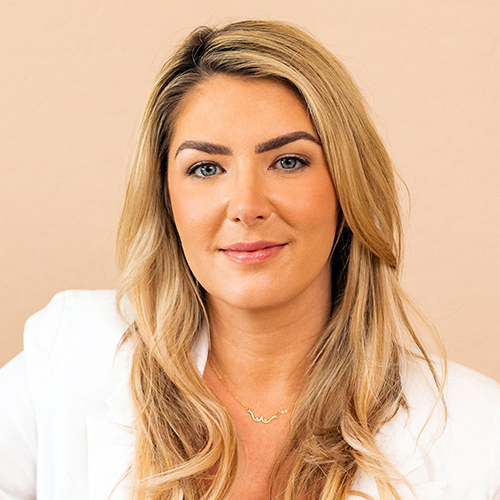

Jacqueline Kincer is the founder of Holistic Lactation where she runs a busy practice, manufacturers herbal supplements for lactation, and supports breastfeeding families worldwide. She's also the host of the podcast Breastfeeding Talk: Milk. Mindset. Motherhood. and creator of the online breastfeeding community, The Nurture Collective. Jacqueline's passion has been to create functional breastfeeding outcomes and expand access to lactation knowledge across the globe.
Topic: Inside the Infant Mouth: Oral Assessment & Function - [View Abstract]
Topic: Tongue Tied Untied: Creating Functional Breastfeeding Outcomes - [View Abstract]
In this presentation, Jacqueline demonstrates how tongue tie affects proper breastfeeding, specifically the mechanics of breastfeeding such as oral grasp, tongue extension, pressure generation, and more. You'll learn how to know which problems are issues that can be corrected with targeted oral exercises, or if bodywork is needed instead. We will also cover the timeline of habilitation in the weeks following frenectomy.
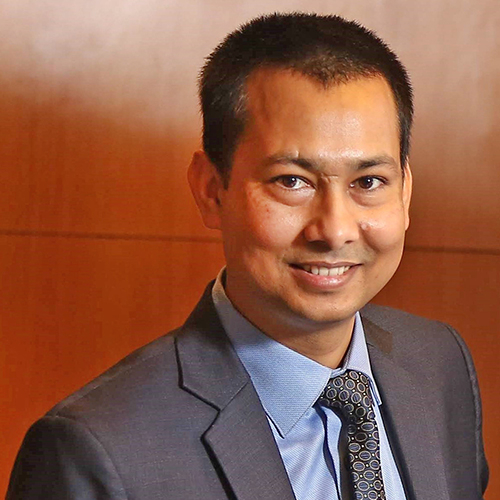
Tongue-Tie and the NICU: A Neonatologist Perspective

Dr. Ankur Bio Update - Dr. Kumar Ankur, MD, DNB is working as an Associate Director & Head of the Department of Neonatology at BLK MAX Super Speciality Hospital Delhi, India. He has been working in the field of neonatology with private and non-goverment organisations for improving neonatal healthcare in the country. He is the national faculty and trainer for FBNC (Facility based neonatal care), Neonatal Resuscitation, Kangarroo Mother Care (KMC) and the national assessor for Neonatology Fellowship accreditation programme of India. He has been invited as an expert speaker, faculty, chairpersons for various national and state level conferences and workshops. He has many publications in national & international journal and authored many chapters, guidelines published by Indian Academy of Pediatrics & National Neonatology of Forum Delhi & India. He is also the co-editor of Handbook of Neonatal Clinical Practices. He is also running training program in neonatal Fellowship for postgraduate students & neonatal nurses. Currently he is also the Secretary of prestigious National Neonatology Forum, Delhi. National Neonatology Forum (NNF) is a strong and large body of more than 8000 neonatologists across India and abroad. NNF has been actively involved in advocacy, policy making, research and ensuring quality health care to newborn for the last 4 decades. He had been past Secretary (2014) & President (2018) of Indian Academy of Pediatrics (IAP), Central Delhi Branch.
Topic: Tongue-Tie and the NICU: A Neonatologist Perspective - [View Abstract]
Tongue Tie is an interesting clinical subject with extreme variability in understanding among lactation consultants, neonatologists, pediatricians, speech therapists, pediatric surgeons, and dental/oral surgeons. There is still no consensus on diagnosis and mode of treatment. However, in recent years there seems to increase reliance on cutting the tie despite the lack of robust evidence. As clinicians, we should always give an unbiased approach towards any neonate's feeding-related problem. Holistic systems like simple bodywork and prolonged skin-to-skin contact, and family involvement can often resolve infant feeding issues. Family-centered care (FCC), based on collaborative participation of the family and a team of health care providers, is found to increase infants' well-being in neonatal critical care units. Our own postgraduate student did her dissertation To Determine the Prevalence of Lingual Frenulum in Infants ≥ 1800 grams of Birth Weight Affecting Breastfeeding (Submitted for Publication). We shall be sharing the Indian data and providing more information about the prevalence of tongue-tie in the NICU, how to distinguish between tongue-tie and other common feeding issues in neonates and the importance of holistic care.


Divya Sinha Parikh MD, IBCLC, FAAP is a board certified pediatrician practicing in Columbus, OH. She received her medical training at The University of Pittsburgh School of Medicine and completed her residency in general pediatrics at Rainbow Babies and Children’s Hospital at Case Western Reserve University. She formerly served on the Baby Friendly Hospital Initiative Committee at MetroHealth Hospital Systems in Cleveland, OH and created a breastfeeding medicine clinical rotation during residency. Her work has been presented in local and national meetings.
The objectives of this lecture are to understand the definition, pathophysiology, and basic management of hyperlactation. Topics discussed with include proposed mechanisms leading to hyperlactation, health effects on mother and baby, and approach to diagnosis and management. Participants will learn key history and physical findings for hyperlactation, behavioral interventions to reduce milk supply, herbal and medical interventions to reduce milk supply, and will learn how to determine which dyads would benefit from medical intervention.
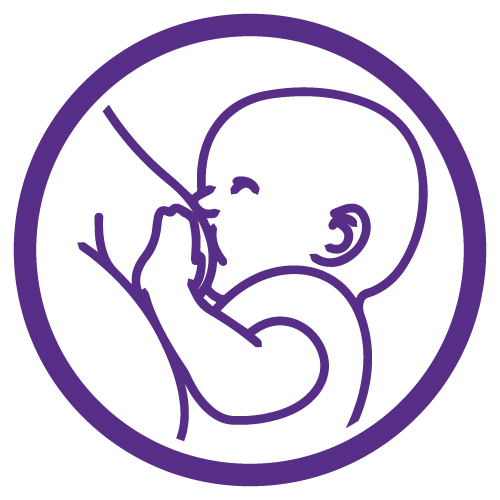
View Details / Enroll
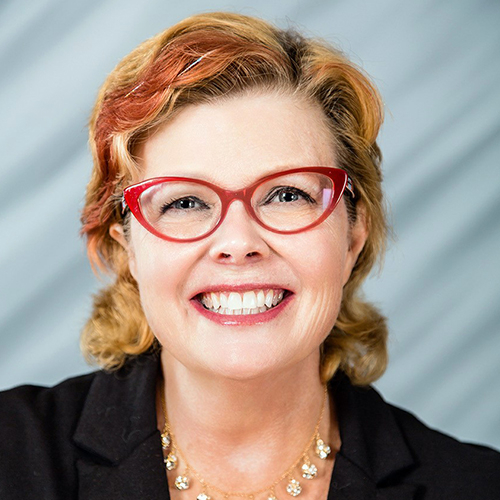
Trauma and Breastfeeding: Working Effectively with Trauma Survivors

Dr. Kendall-Tackett is a health psychologist and International Board Certified Lactation Consultant, and the Owner and Editor-in-Chief of Praeclarus Press, a small press specializing in women's health. Dr. Kendall-Tackett is Editor-in-Chief of the journal, Psychological Trauma and was Founding Editor-in-Chief of Clinical Lactation, a position she held for 11 years. She is Fellow of the American Psychological Association in Health and Trauma Psychology, Past President of the APA Division of Trauma Psychology, and a member of APA’s Publications and Communications Board.
Topic: Breastfeeding Helps Mothers Overcome the Legacy of Abuse and Adversity: It Makes All the Difference - [View Abstract]
Topic: Burnout, Compassion Fatigue and Self-Care for Members of the Perinatal Team - [View Abstract]
Topic: Burnout, Secondary Trauma, and Moral Injury in Perinatal Care Providers - [View Abstract]
Topic: Does Breastfeeding Protect Maternal Mental Health? The Role of Oxytocin and Stress - [View Abstract]
Topic: Lessons to Learn from Fed Is Best: How Can We Improve Our Care? - [View Abstract]
Topic: Mother-Infant Sleep Location: It's Not as Simple as it Seems - [View Abstract]
Topic: Trauma and Breastfeeding: Working Effectively with Trauma Survivors - [View Abstract]
Topic: What’s New in Postpartum Depression? A Summary of Current Findings - [View Abstract]
Trauma affects at least one third of childbearing women. Although a common experience, many breastfeeding counselors do not feel confident in working with trauma survivors. Should they ask about it? How do you stay within your scope of practice? This session will provide an overview of the types of trauma women are most likely to experience (childhood abuse, birth trauma, sexual assault, partner violence, natural disaster, and combat), and provide strategies for working effectively and comfortably with trauma survivors. This session also provides an overview of research showing that breastfeeding actually helps trauma survivors cope and lessens the risk of intergenerational trauma.
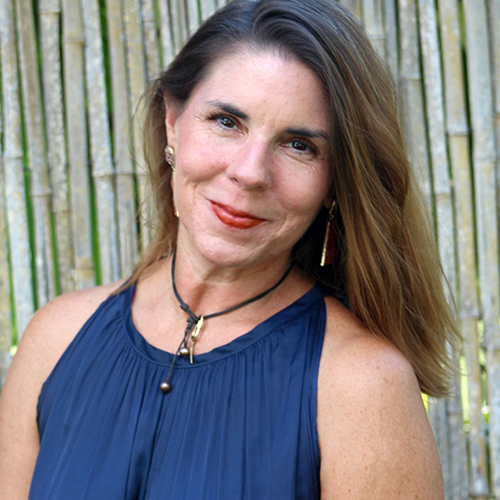
Trauma, Timing and Tenacity: Navigating Care When Frenectomy Doesn’t Help

Michale is an Integration visionary with a discerning view of the ancient and an eye on the future. She created one of the first on site integrated care clinics for Tongue Tie treatment 10 years ago that included Lactation support, Body nervous system and movement work, Laser tongue tie release and cranio-facial anticipatory growth guidance. She currently mentors Integrative practitioners in Wayfinding methods which allow practitioners to tap into their unique gifts and learn to incorporate them into practice.
The field of tongue-tie treatment is rapidly changing, and great strides have been made over the years to create sequencing of care to ensure predictable outcomes related to the achievement of optimal oral function after tongue-tie release. Despite this, there are times when a frenectomy does not seem to “work”, “help” or make a significant difference. This is frustrating for families and can leave health care professionals wondering what to do next. This presentation will discuss screening for trauma as a way to improve frenectomy success. Learn more about the impact of collective trauma on the infant’s nervous system and the importance of the timing of frenectomy along with the sequencing of pre, intra and post-op habilitative care to increase outcome success.

Trauma-Informed Care in the Newborn Intensive Care Unit: Promoting Safety, Security, and Connectedness

Dr Marilyn R Sanders is a board-certified pediatrician and neonatologist who cares for critically ill babies, infants, and their families at the Connecticut Children’s Medical Center Newborn Intensive Care Unit in Hartford, CT. Dr Sanders did her pediatric residency at the University of Connecticut School of Medicine and her fellowship in Neonatal-Perinatal Medicine at Johns-Hopkins School of Medicine. She is a Professor of Pediatrics at the University of Connecticut School of Medicine. She also provides neurodevelopmental follow-up for babies and infants up to 3 years old. Her scholarly interest is providing trauma-informed care to hospitalized newborns, infants, young children, and their families. Her focus is the impact of the autonomic nervous system’s sense of safety, danger, or life threat on our emotions and behavior. She lectures throughout the United States and Europe. She has authored papers and book chapters on trauma-informed care for young infants, children, and their families in the hospital setting. Dr Sanders is currently under book contract with WW Norton and Company. Her book, to be published in 2020, discusses implications of the Polyvagal Theory, for the well-being and development of infants, children, and adolescents.
Human infants expect to engage and connect to their adult care providers to feel safe, secure, and thrive. The autonomic or unconscious nervous system alerts us whether we feel safe, in danger, or in a life-threatening situation. When we feel safe, we are open, calm and ready to engage. When we feel in danger, our sympathetic nervous system is activated; our hearts race, and we may either lash out or leave. Finally, if we feel our lives are endangered, we may collapse, shut down or dissociate. Neuroscientist Stephen Porges calls the unconscious awareness of our safety, danger, or life threat, neuroception.
When babies are hospitalized in a newborn intensive care unit. (NICU), their biological expectancies of physical and emotional proximity to their caregivers are disrupted. Both hospitalized babies and their families may have neuroceptions of danger or even life threat reflected in their behaviors and vital signs. Supporting parasympathetic vagal tone through the continuous presence of families, skin to skin care, and forming strong relationships can mitigate the trauma of a hospitalization in the NICU.
Trauma-informed care in the NICU supports babies and their families to remain together, supports parents as the primary relationship for their babies and builds safety, security, and connectedness among babies, families, and staff.
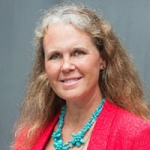

Mickey Sperlich, an assistant professor with the UBSSW, is an experienced midwife and researcher who studies the effects of trauma and mental health challenges on women’s childbearing and postpartum experiences and outcomes. She became interested in research in order to better understand the needs of her midwifery clients who were trauma survivors. Her first research project culminated in the book “Survivor Moms: Women’s Stories of Birthing, Mothering and Healing after Sexual Abuse,” which was named the 2008 Book of the Year by the America College of Nurse Midwives. Sperlich has taken part in several trauma-focused perinatal studies and is co-author of a psychosocial intervention for pregnant survivors of abuse, the “Survivor Moms’ Companion.” She completed her PhD with a dual title in Social Work and Infant Mental Health at Wayne State University in Detroit, Michigan, in 2014. Sperlich says, “I am committed to developing trans-disciplinary approaches to understanding and addressing the sequelae of sexual violence and other trauma, particularly for childbearing women. I am actively involved in developing and evaluating interventions which address issues experienced by survivors of trauma and which are directed at interrupting intergenerational cycles of violence and psychiatric vulnerability.”
This presentation will apply a trauma-informed lens to understanding how cycles of violence and psychiatric vulnerability affect women and their families during the childbearing year. Recent research shows how exposure to sexual trauma and other forms of child maltreatment and individuals’ reactions to such exposures in the form of posttraumatic stress and depression in particular imparts risk for adverse outcomes for mothers and babies. Recent advances in the field of epigenetics and neurobiology also show how enduring the effects of trauma can be. Fortunately, evidence is also emerging which suggests how trauma-informed and trauma-specific interventions can disrupt these cycles and ameliorate the effects of trauma. This session will overview current recommendations and best practices for adopting trauma-informed principles for any human service organization, and will specify how these recommendations can be applied to perinatal settings.
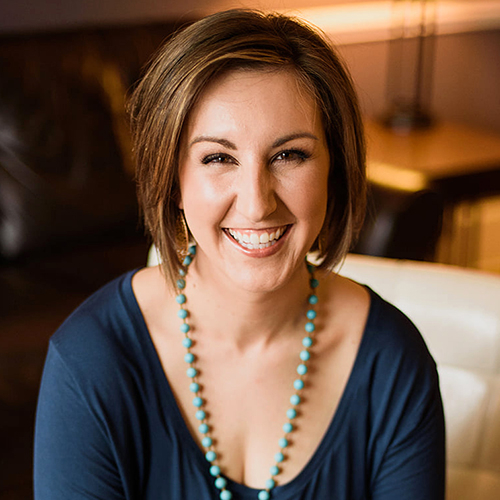
Trauma-Informed Care: A Guide to Patient Advocacy for Trauma Survivors

Mandy Irby, pronouns are she/her, is a board certified labor nurse with 13 years of experience supporting survivors of assault and trauma through pregnancy, birth planning, and at their bedside during childbirth and pregnancy loss. After experiencing her own birth trauma, she quickly learned that the birth care system is NOT centered on human rights, patient choice, and the individual experience. In 2020, Mandy made education a full-time career. She now teaches and supports parents and nurses how to better center voice, choice, and physiology in birth. It's Mandy’s mission to change birth culture so that it's parent-centered, trauma-informed, and safe for all.
Mandy enjoys teaching in-person, in whole-team learning: Peanut Ball, Labor Support Skills and Trauma-Informed Care At the Bedside workshops. She also supports local parents with small-group Spinning Babies® Parent Classes when in-person learning is safest. Mandy is also an international educator through her online, on-demand childbirth ed classes and she supports anxious parents-to-be with virtual, one-on-one trauma-informed birth strategy sessions. She’s the co-founder of Fearless Birth, Delivered, founder and owner of The Birth Nurse®, and a proud co-creator of the BRAND NEW Trauma-Informed Birth Nurse Program. As a creative educator, Mandy is also the co-author of an Amazon best-seller, Baby Got VBAC, and reaches millions of viewers each month through her engaging, tongue-in-cheek social media platforms.
When she’s not working from home, Mandy might be found at any local plant nursery adding to her, some may say, out-of-control house plant collection. She’s a serial craft starter and non-finisher, loves walking her doodle puppy, and playing in the creek with her 2 kids.
Topic: Trauma-Informed Care: A Guide to Patient Advocacy for Trauma Survivors - [View Abstract]
Thanks to the brave whistle blowers who have shared their stories, the community at large has become increasingly aware of the prevalence of sexual assault and trauma. Healthcare professionals report a lack of education specifically related to the care of assault survivors and an eagerness to learn trauma-informed care practices. A shift in care practice is nearly impossible, however, if healthcare professionals, especially nurses, hold a feeling of perceived powerlessness in their professional role. In this session, we’ll review patient advocacy definitions as they relate to a patient-centered standard of care. Participants will also learn how to provide compassionate, trauma-sensitive care to survivors of trauma while preventing further harm. Instead of feeling powerless, participants can begin to develop awareness of the unique superpowers that perinatal healthcare providers possess and receive a foundational understanding for how to be strong, confident patient advocates.
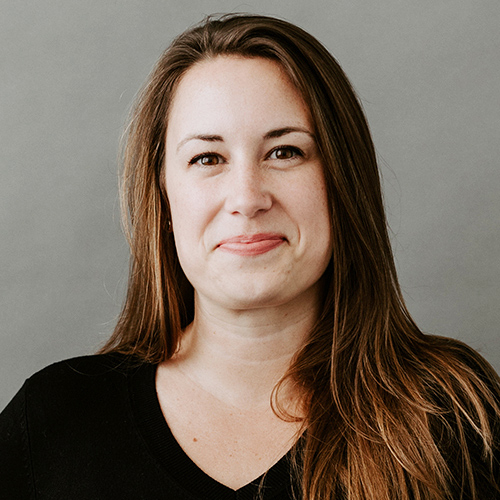

Stephanie Tillman (she/her) is a midwife at the University of Illinois at Chicago. She completed her undergraduate degree in Global Health and Medical Anthropology at the University of Michigan, and her graduate degree in Midwifery at Yale University. She is on the Boards of Directors of Nurses for Sexual and Reproductive Health (NSRH) and the Midwest Access Project (MAP), is an Advisory Committee Member of the Queer and Transgender Midwives Association (QTMA), and is a member of the ACNM Ethics Committee. She is currently a Clinical Medical Ethics Fellow at the University of Chicago's MacLean Center, where she is focusing on consent in intimate exams. Stephanie blogs under the name Feminist Midwife, and through that online platform, academic and public writing, and professional speaking engagements, seeks to interact with providers and consumers in conversations about consent in health provision, queer care, sex positivity, nurses and advanced practice clinicians in abortion care, and trauma-informed frameworks. Find her on social media @FeministMidwife.
The framework of trauma-informed care first emerged in the 1990s, proposed by sexual assault survivors as a structure for safe engagement with healthcare institutions and providers. Decades later, this approach to intimate care continues to exist more in theory than in standard practice. Exceptionalized circumstances in obstetrics and gynecology, such as the first pelvic exam, care for patients with a known history of sexual assault, or care for queer communities, often embody the ideals of trauma-informed care that could easily be extrapolated to all care interactions. The importance of intentionality in intimate care, including consent processes as well as physical touch, is all the more critical given publicized cases of providers physically and sexually assaulting patients. Further, as COVID-19 continues to affect individuals and communities worldwide, trauma now touches every person’s life in new and challenging ways. This holds the opportunity to facilitate a connected empathy between patients and providers, and thus a new possibility to integrate trauma-informed care into practice. This presentation will review the framework of trauma-informed care, detail best practices for pelvic care, discuss the impact of COVID-19 on intimate examinations, and challenge providers to modify current practices in order to create safe environments for empowering healthcare experiences.

View Details / Enroll
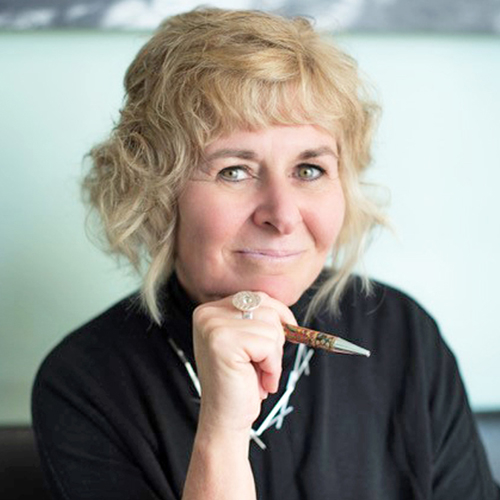

Kim Barthel is an award-winning occupational therapist, trans-disciplinary teacher and best-selling author who is actively supporting function and healing in many cultures. A pioneer in reinforcing the importance of relationship, Kim’s passionate interests include complex behaviour, attachment, sensory processing, trauma-sensitive practice, Neuro-Developmental Treatment and mental health. Kim’s mission is to support the conscious evolution of the human spirit. www.kimbarthel.ca
This session invites early childhood professionals to learn more about the science of infant development, particularly the impact that early trauma and stress can have on the brain, behaviour, learning and relationships throughout the lifespan. Attachment, attunement, co-regulation, sensory processing and creating optimal interpersonal relationships between infants and caregivers are highlighted. While an infant may inherit challenges trans-generationally, from developmental disability, from an early life event or a chaotic home, how their closest caregivers interact with them has direct and significant impact on their well-being both mentally and physically. Enhancing trauma-sensitive caregiving in the earliest years is critical as a foundation for children to become their best selves.






